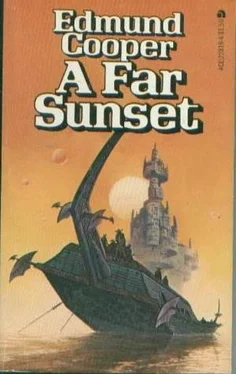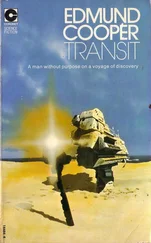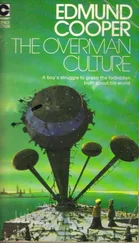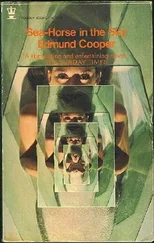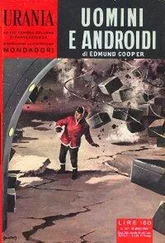And suddenly, there was light.
He looked up at (down upon? around?) the most beautiful city he had ever seen. It grew—blossomed would have been a better word—in a desert. The desert was not a terrestrial desert, and the city was not a terrestrial city, and the men and women who occupied it—brown and beautiful and human though they looked—were not of Earth.
‘This city of Mars,’ said the Aru Re, ‘grew, withered and died before men walked upon Sol Three or Altair Five. This city, on the fourth planet of your sun, contained twenty million people and lasted longer than the span of the entire civilization of Earth. By your standards it was stable—almost imm ortal.
And yet it, too, died. It died as the whole of Mars died, in the Wars of the Great Cities that lasted two hundred and forty Martian years, destroying in the end not only a civilization but the life of the planet that gave it birth.’
The scene changed rapidly. As Paul Marlowe looked, it seemed as if the city were expanding and contracting like some fantastic organism inhaling and exhaling, pulsing with life—and death. In the accelerated portrayal of Martian history that he was now witnessing, buildings and structures more than two kilometres high were raised and destroyed in the fraction of a second. Human beings were no longer visible, not even as a blur. Their time span was too short. And every few seconds the desert and the city would erupt briefly into the bright, blinding shapes that Paul recognized from pictures he had seen long ago—the terrible glory of transient mushrooms of atomic fire.
‘Thus,’ went on the matter of fact voice of the Aru Re, ‘did Martian civilization encompass its own suicide … Think of a culture and a technology, Paul Marlowe, as far ahead of yours as yours is ahead of the Bayani. Think of it, and know that such a culture can still be vulnerable as men themselves are always vulnerable … But there were those—men and machines—who foresaw the end. They knew that the civilization of Mars, inherently unstable, would perish. Yet they knew also that, with the resources at their command, three hundred million years of Martian evolution need not be in vain.’
The scene changed, darkened. Without knowing how he knew, Paul realized that he was now gazing at a large subterranean cavern, kilometres below the bleak Martian desert. Here other structures were growing, like strange and beautiful stalagmites, from the floor of living rock. Men and machines scuttled about them, ant-like, swarming. Everywhere there was a sense of urgency and purpose and speed.
‘And so the star ships were built—the seed cases that would be cast off by a dying planet to carry the seeds of its achievement to the still unravaged soil of distant worlds … Here is the rocky bed where I and six other identical vessels were created. It would have been comparatively easy to build star ships that were no more than star ships. But we were created as guardians—living guardians, fashioned from materials almost impervious to the elements and even time itself. Our task was not only to transport, but to nurture and prepare the seed; and when the seed had again taken root, when the flower of civilization had begun to bloom again, it would be our task to restore the racial memory and reveal the origin of that which could now only achieve maturity on an alien soil. Many died that we might be programmed for life. Many remained behind that we might carry the few—the few who were to become as children, their minds cleansed of all sophistication and personal memories so that they might rediscover a lost innocence, learning once more over the long centuries of reawakening, the nature of their human predicament.’
Again the scene accelerated. The star ships grew towards the roof of the cavern. In a silent, explosive puff, the roof itself was blasted away by some invisible force. Two of the star ships crumpled swiftly and soundlessly to lie like twisted strips of metal foil on the floor of a great rocky basin that was now open to the sky. A tiny, thin , blurred snake—that Paul Marlowe knew was a stream of human beings—rippled to the base of each of the remaining star ships. And was swallowed. Then, one by one, each of the silver vessels became shrouded by blue descending aureoles of light. The rock floor turned to brilliant liquid fire as the star ships lifted gracefully and swiftly into the black reaches of the sky.
‘That was how the exodus took place,’ continued the Am Re. ‘That was how the seed-cases carried the seed. Of the five ships that left Mars, one proceeded to Sirius Four, where a great civilization is now maturing; one voyaged to Alpha Centauri One, where the seed withered before it had taken root; another journeyed to Procyon Two, where the seed remains still only the seed, and where there is yet little distinction between men and animals; the fourth vessel, myself, came here to Altair Five, where, it seems, the flower may yet blossom; and the last vessel made the shortest voyage, to Sol Three, the planet you call Earth. Its seed lived and flourished, though the star ship was destroyed, having settled on land that possessed a deep geological fault. It is now more than nine millennia since the island on which the star ship rested was submerged below the waters you know as the Adantic Ocean.’
Paul’s mind was numbed by revelations, traumatized by knowledge, shattered by incredible possibilities. The Mardan scene had faded, and there was now nothing. He floated dreamily and luxuriously in a sea of darkness, an intellectual limbo in which it was only possible to assume ‘sanity’ by actually believing that these fantastic experiences had been communicated to him by a telepathic star ship.
‘Your body grows cold,’ said the Aru Re incomprehensibly, ‘and there is little time left for me to answer the questions that are boiling in your mind. Soon I must allow you to return. But here are some of the answers that you seek. It is true that my mind is a linked series of what you would call computers, but it also stores the implanted patterns of the minds of men long dead. It bears no more relation to what you understand by the term computer than your Gloria Mundi bore to its ancestor, the guided missile. You wish to know how I can speak your tongue and converse of the things you have known. I can speak the language used by any intelligent being by exploring its mind and correlating symbols and images. You wish to know also if I can still communicate with the remaining star ships, the guardians that await the maturation of their seed, as I do. We communicate not by any form of wave transmission that you can understand, but by elaborate patterns of empathy that are not subject to the limiting characteristics of space and time.’
It seemed to Paul that, in the black silence of his head, there was a great drum roll of titanic laughter. ‘Is it so strange, little one,’ said the Aru Re softly and with irony, ‘that even a machine can grow lonely? Also, we need to share the knowledge when the first of the seed brings forth a truly mature fruit. For then there can be no doubt that the scattering of the seed was not in vain … I will answer one more question, and then you must return if you are to live. You are puzzled by the variation in the number of fingers of the race you have discovered. There was some small genetic damage during transit, which caused slight mutations. The variations are of no importance. It matters not in the long sweep of history.’ Again the titanic roll of laughter. ‘In the end, little one, despite their now rigid tabu of the little finger, the far descendants of the Bayani will be as their Martian ancestors were. But perhaps they will have outlived the impulse to self-destruction … Now, farewell, Paul Marlowe. Your mind flickers and your body grows cold … Open your eyes /’
Читать дальше
